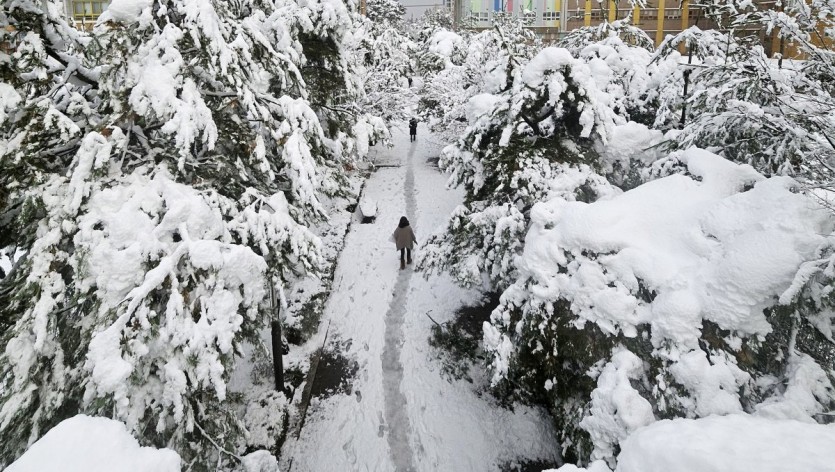Unprecedented Snowfall in South Korea: A Climate Change Perspective
페이지 정보

본문

(https://www.donga.com/news/Society/article/all/20241206/130583288/1)
In late November 2024, South Korea experienced an unprecedented heavy snowfall, particularly affecting the central regions. This event has been closely linked to climate change, highlighting the complex ways in which global warming can lead to unexpected weather patterns.
Key Factors Contributing to the Heavy Snowfall:
Elevated Sea Surface Temperatures: Throughout the summer and autumn of 2024, the sea surface temperatures in the Yellow Sea remained between 14°C and 16°C, higher than average. This warmth provided ample moisture, fueling the formation of snow clouds.
Sea-Air Temperature Differential (Sea Effect): A significant temperature difference of approximately 25°C between the warm sea surface and the cold air mass above intensified atmospheric instability. This disparity led to the development of robust convective clouds, resulting in substantial snowfall over the Korean Peninsula.
Disrupted Atmospheric Circulation: Climate change has been associated with alterations in atmospheric circulation patterns, including the weakening of the polar jet stream. Such disruptions can cause cold Arctic air to move southward more frequently, increasing the likelihood of heavy snowfall events in regions like South Korea.
Implications of Climate Change:
The 2024 snowfall event underscores the paradoxical effects of global warming. While average global temperatures are rising, leading to more frequent heatwaves and droughts, the associated climatic shifts can also result in severe cold spells and heavy snowfall. This phenomenon is attributed to the destabilization of established weather patterns, causing extreme and unpredictable weather events.
Conclusion:
The heavy snowfall in South Korea during November 2024 serves as a stark reminder of the multifaceted impacts of climate change. It highlights the urgent need for comprehensive climate action to mitigate these unpredictable and extreme weather events.
- Prev10 Practical Ways to Fight Climate Change in Our Daily Lives 24.12.10
- NextEnvironmental Conservation: A Cultural Comparison of South Korea and Bangladesh 24.12.05
댓글목록
There are no registered comments.
